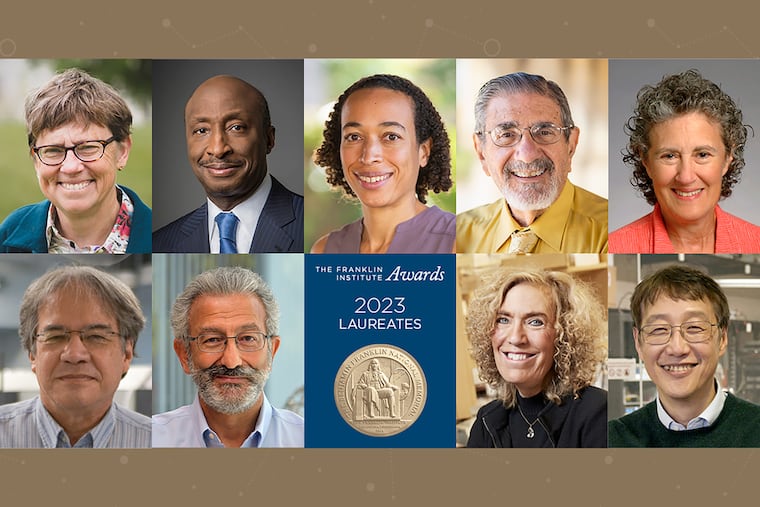Franklin Institute is honoring pioneers in fields from climate change to cancer research, including two with Philly roots
Among the winners is former Merck CEO Kenneth C. Frazier, who cofounded a coalition to hire or promote 1 million Black people in 10 years.

The Franklin Institute announced the winners of its annual awards in the sciences and business leadership on Tuesday, honoring nine pioneers in fields from climate change to cancer research.
Two winners have Philadelphia roots: former Merck chief executive officer Kenneth C. Frazier and University of Pennsylvania engineer Nader Engheta.
Frazier, the drugmaker’s former CEO and chairman, is being recognized for his efforts to improve social equity. Among them was cofounding OneTen, a coalition of companies that made a 10-year pledge to hire and promote 1 million Black people without four-year college degrees into family-sustaining jobs.
Engheta, a professor of electrical engineering at Penn, is being honored for inventing new composite materials that could be used to make ultrafast computers of the future. Called metamaterials, these intricate structures, invisible to the naked eye, are designed to solve equations by manipulating waves of light.
The awards are to be given at a black-tie ceremony April 27, after three days of symposiums and related events. The science museum has given awards to more than 2,000 innovators in science and industry since the 1800s, including 122 who also have won Nobel Prizes.
This year’s winners share a commitment to a better future for humankind, institute president and chief executive officer Larry Dubinski said in a statement.
“These extraordinary advancements in areas of such importance as social equity, sustainability, and safety are significantly moving the needle in the direction of positive change and therefore laying the groundwork for a remarkable future,” he said.
The award winners are:
Bower Award and Prize for Achievement in Science
Deb Niemeier, University of Maryland, College Park, for her research on how infrastructure can be redesigned to minimize climate change.
Bower Award for Business Leadership
Kenneth C. Frazier, Merck & Co. (see above).
NextGen Award
Monika Schleier-Smith, Stanford University, for her study of ultracold atoms and their interactions with light.
Chemistry
Richard N. Zare, Stanford University, for pioneering the use of lasers to observe molecules as they react.
Computer and cognitive science
Barbara H. Liskov, Massachusetts Institute of Technology, for improving programming languages and pioneering a field called distributed computing.
Earth and environmental science
R. Lawrence Edwards, University of Minnesota, for developing high-precision methods to measure the effects of climate change in prehistoric geological samples.
Electrical engineering
Nader Engheta, University of Pennsylvania (see above).
Life science
Elaine Fuchs, The Rockefeller University, for her work on the genetics of skin disease, including cancer.
Physics
Philip Kim, Harvard University, for his study of advanced materials that have a thickness of one atom.